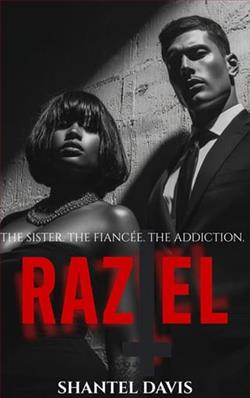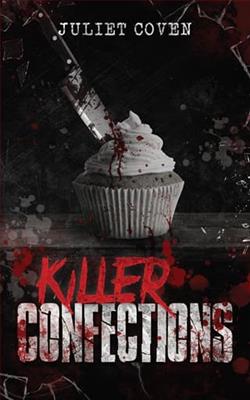Page 5 of Last Seen
She stops reading. She feels sick. “Howdarethey.”
“Well, that answers that. I thought, with all thechangesyou’ve been making recently, you decided to go in another new direction. But they let you go? Because you clicked on a meeting invite?”
All thechanges. This new edge to his voice almost breaks her in two.
“Apparently so. Please, Theo. Not now. Okay? My dad took a spill and is heading into surgery. I’m on my way to Marchburg.”
“I’m sorry to hear that.” He probably is; he and her dad have always gotten along. Then again, her dad could get along with anyone. His voice sharpens. “But Halley, running away is not going to solve things.”
She wills her blood pressure not to rise at his imperious tone and pulls the Jeep back onto the road. “A, I am not running away. Ivan screwed me. I will have to get a lawyer, because they’re trying to fire me with cause, which means no severance. It’s just an excuse to get back at me for filing the harassment claim against Kirk. His dad should have been forced off the board when his creepy son was dismissed. Ivan clearly said this was a ‘board’ decision. It’s retaliation, and they’re not allowed to do that.”
Just saying it aloud makes her feel more in control. They can’t do this—she has a contract, she has rights, and now that she has a tiny bit of altitude, she’s thinking more clearly.
“B, my dad needs me. The timing is ... good.”
“Were you even going to tell me? I know things have been rough lately, but I don’t even merit a call?”
She avoids the answer. “I apologize. Things have happened very fast. I planned to call on my way to Marchburg. Speaking of, I won’t be available to sign the paperwork today.”
“Gathered that,” he says. “I’ll call them.”
A silence stretches between them. She wants to cry on his shoulder, have him comfort her, tell her it will all be okay. That they can start over, that he will support her decision to fight back. That he will change his mind about a family.
But it won’t be okay. None of this is okay. “Youare doing this to us,” he’d said when she left, and those words still linger between them.
“I’ll let you know how Dad is,” she says finally. “Kiss Charlie for me.”
She hangs up before he can hear the crack in her voice, the crack in her resolve.
Maybe she is running away after all.
The three-hour drive to Marchburg goes by quickly. She distracts herself rocking out to the Pixies and R.E.M. and Nine Inch Nails. If there’s anything DC has given her, it’s a love of music; the concert venues are absolutely fantastic, and all the coolest bands come through. She especially loves old-school progressive and punk, though she’ll go in for most anything that has a beat. As if her car knows her mission, the Violent Femmes start banging out “Gone Daddy Gone.”
She feels bad for her dad, but this is surely a blip. A broken leg sucks, but he’s strong, in good shape, and she has no doubt he’ll be up and moving around in no time. It will be good to see him, and see home. She hasn’t been back in months.
The drive is as pretty as always. Thick copses of evergreen commingle with maples and oaks. A red-tailed hawk soars above theexitsign. The sun is setting as she winds her way up the last switchback before the top of the mountain, and the town comes into view. Home.
Marchburg is a small town that could double as an ancient Scottish castle fortress if it were on another continent, sequestered behind a redbrick wall. The streets form an X, with the Chilhowie-brick Jacobean-style architecture of the school taking center stage. The town itself relies on the private girls’ prep school where her dad teaches—the Goode School—being in session for its lifeblood. Inverse to a beach town that grows in population during the summer months, Marchburg swells to three times its normal population when the girls come to school in the fall and deflates again when they leave in the late spring. The influx of their money—their parents’ money—keeps the shops and restaurants in business through the leaner months. The sleepy mountain town has been her home since she was little; they moved here from Nashville afterthe car accident that took her mother’s and sister’s lives when she was six. It’s been her and her dad ever since.
Being the daughter of a professor wasn’t terrible. The girls of Goode had treated her as an unofficial mascot for most of her younger life. When she was fifteen and less sensitive to her own insecurities and desired a more traditional education model rather than continuing to be homeschooled, she enrolled as a day student instead of taking the bus down the mountain to the school in Jasper, one town over.
She didn’t fit in with the girls at Goode, especially being both a townie and the daughter of a teacher, not to mention a motherless waif, but she was more interested in the classes than fitting in. Then she left for college, where, from day one, she was a superstar. There has always been something very right about her time in DC. Until now, until today, the city has been good to her—her father has commented more than once that she’s blossomed under its careful tutelage. She found a career, a husband, a life. Happiness. Everything he always wanted for her.
Now, the machinations that give it the nickname “the Swamp” have betrayed her in the worst way possible. The bastards screwed her.
She decides not to tell her dad what’s going on for the time being. He needs to focus on getting well, not have his energies diverted by her drama.
As she passes the brick walls and tall black wrought iron gate that lead onto Goode’s campus, she smiles. All hail the nostalgia. Despite not being an “it” girl, she enjoyed her time there, traipsing around in the quad, sitting on the very steps her father tumbled down. There was something safe about the red bricks and the black gate, something apart from the rest of town. Once you got off the hill, Marchburg looked more like every other small town in the South. But by the school, it was a fairyland. Granted, a student was murdered several years ago in the arboretum, but that was situational. An obsession gone wrong. They’ve increased security tenfold since then, and the new administration runs a very tight ship.
She goes straight to the hospital, driving down Front Street as the streetlights flicker in welcome. The sidewalks are wide, the antebellum houses standing at attention. Some are still family homes; many are high-end offices for doctors or lawyers. It feels wrong to see small parking lots in place of the wide lawns of her youth. The trees are bigger now, forming a canopy over the street, and she turns left into the hospital parking lot with a sigh of relief.
It’s not a big place; for more serious situations, there is medical life flight or ambulance transport to Charlottesville. But there’s a solid orthopedics department here, mostly because the sporty girls of Goode tend to break themselves.
She parks in the small lot just as the dark of night settles in with finality. Crossing the asphalt toward the well-lit building, she hears the soft hoots of an owl—once, twice, thrice. There are legends about owls and the portents they bring. But to Halley, it is as natural as breathing. If anything, it feels almost as if the creatures of Marchburg are welcoming her home.
Inside, she approaches the main desk. A dark-haired woman in blue scrubs with a stethoscope around her neck looks up. “Hi, can I help you?” And then recognition dawns on her face. “Holy cow, Halley James! Haven’t seen you in years. Your dad said you’d be coming home to visit.”
The wonders of living in a small town. Kathryn Star was aptly named—the center of the girls’ basketball team at Jasper High; she was an All-American athlete and smart, to boot. She’d lived on their street, and Halley had always liked it when she came over to babysit. It’s a little strange seeing her as a woman—an adult peer.















